Keynote Speakers
Gustl Marlock The Structural Changes of The Soul in Postmodernity
In postmodern cultures of consumerism Freud´s notion, that freedom should be traded for the structural security of culture is reversed. Henceforth symptomatically we see a rise of diffuse, amorphous anxieties, growing structural deficits and chronic dependency, like in narcissistic and borderline dynamics and widespread inclinations towards regression.
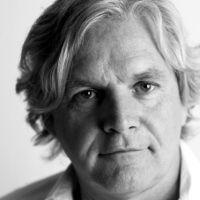
Gustl Marlock
Gustl Marlock, studied educational science and is a certified psychological psychotherapist and child and adolescence psychotherapist. He codirects the german training program in Unitive Body-Psychotherapy. He ids an advisory board member of two Training academies for Psychodynamic Psychotherapy and works as a lecturer, supervisor and training therapist in that field. Co-editor of the “Handbook of Body-Psychotherapy”
Prof. Maurizio Stupiggia The pain in the virtual world: a new challenge for Body Psychotherapy
Social crisis and modernization have significantly modified psychopathology; psychotherapists often deal with diseases, which are not proper mental disorders, but abnormal reactions to adverse life events.
Classic syndromes, such as depression, anxiety and obsessive-compulsive disorder, are considered in light of recent psychopathological changes.
An increase of borderline personality disorders and new forms of psychopathologies, such as those related to dysfunctional use of the Internet and behavioural addictions are likely to modify clinical practice.
Analyzing the transformation generated by the digital era, Dissociation, and particularly Somatoform Dissociation, is a crucial core of the problem.

Prof. Maurizio Stupiggia
Maurizio Stupiggia, body-psychotherapist.
He works as a trainer in some European countries, in Japan and Latin America.
Professor of General Psychology at the University of Genoa (Faculty of Medicine). Founder, with Jerome Liss, of International School of Biosystemic.
Beside many articles, he wrote two books, which were translated in other languages, “La terapia biosistemica” and “Il corpo violato”. In collaboration with other authors he published “Il benessere nelle emozioni” (2009), and “Biosistemica, la scienza che unisce” (2015).
Lidy Evertsen Making inner and outer connection
Some complaints which clients bring to the consulting rooms are related to these changes. Others are not so new, but receive more attention nowadays. Currently we are frequently presented with burn-out, ADHD, Borderline behaviour and fear related problems e.g. In this lecture I would like to talk about a clinical approach based on a view of the underlying dynamics in humans, such as dissociation, which cause challenges in meeting today’s world. I understand today’s world as current times as well as in opposition to people’s own life history.

Lidy Evertsen
Lidy Evertsen, Body Psychotherapy practitioner in her own practice since 1993; modalities - Unitive Psychotherapy, Bodynamic Analysis; specialised in working with dissociation and DID; Bodynamic trauma therapist; trainer, supervisor and therapist for Body Psychotherapy students and practitioners; EABP president 2010-2016; active in the development of the profession of Body Psychotherapy in EABP Think Tank, Continuous Congress Content Committee and CPD committee.
Jeanne Nakamura On the Experience of Flow
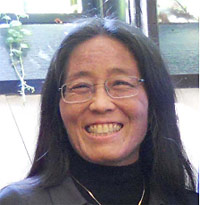
Jeanne Nakamura
Jeanne Nakamura is Associate Professor of Psychology at Claremont Graduate University, California. She received her Ph.D. from the University of Chicago. She is cofounder with Mihaly Csikszentmihalyi of the positive psychology concentration and Quality of Life Research Center at Claremont, and is a member of the advisory council of the International Positive Psychology Association. She investigates positive functioning in a developmental context, including vital engagement and creativity, mentoring and good work, and aging well. She is coauthor of Good Mentoring and Creativity and Development. Her current writing and research address motivation and engagement in adulthood, the formative influences of mentoring and the formation of good mentors, and social innovation after sixty as a model for positive aging.
Rae Johnson Navigating Gender in Body Psychotherapy

Rae Johnson
Rae Johnson, PhD, RSMT is a scholar activist working at the intersection of somatics and social justice. Dr. Johnson is the author of Embodied Social Justice and several articles and book chapters on gender in psychotherapy.
Carmen Joanne Ablack Towards intercultural working - pitfalls and possibilities for Bodypsychotherapy
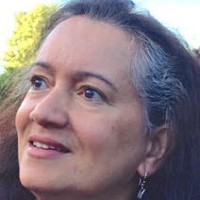
Carmen Joanne Ablack
Carmen Joanne Ablack MSc, has a particular interest in mental health, social responsibility and educational matters, particularly access to professions. She is current President of EABP and former chair of the Chiron Association for Body Psychotherapy (CABP). She is also a member of the Black, African and Asian Therapy Network (BAATN) Leadership Group in the UK. She has been published on a wide range of areas including clinical contemporary practice in psychotherapy, intercultural communications, diversity dilemmas, trauma, access and regulation.
Michael Randolph On Vitality

Michael Randolph
Michael Randolph, General Secretary of French Union of Psychotherapists for eleven years, till 2011. Board member and chairman of membership committee of the European Association of Integrative Psychotherapy for nine years till 2009.
1978 - 1980 Psychotherapist in Denver, Colorado, USA. 1980 - 1985 Body-Psychotherapist in Munich, Germany. 1985 - 2009 Psychotherapist and Body Psychotherapist in Toulouse, France. Co-founder Radix post-Reichian Therapy Association 1985. Runs training and experiential workshops in Poland, the UK, France and Romania. Contributed chapter on Vitality Handbook of Body-Psychotherapy, 2000.
Alan Fogel States of Self-Awareness and the Therapeutic Vitality of the State of Embodied Self-Awareness
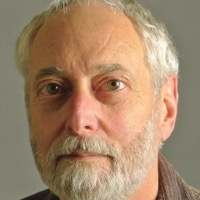
Alan Fogel
Alan Fogel, Professor of Psychology Emeritus, University of Utah, USA
Rosen Method Bodywork Practitioner and Senior Teacher
Salt Lake City, Utah, USA
fogel.alan@gmail.com
Manfred Thielen Body psychotherapy and the Challenges of Today and Tomorrow

Manfred Thielen
Manfred Thielen, Dr. phil., Dipl.-Psych., Psychological Psychotherapist, Body Psychotherapist, trainer, training therapist, supervisor, Director of Institute for Body Psychotherapy Berlin, Lecturer at the Institut für Psychotherapie Potsdam, at Berliner Fortbildungs-Akademie and Akademie für angewandte Psychologie und Psychotherapie in Cologne, Lecturer at Hochschule Magdeburg-Stendal, Member of Editorial Board of Psychotherapeutenjournal, Delegate of Berlin Chamber of Psychotherapists and National Chamber of Psychotherapists, Chair of DGK, Chair of AGHPT. Author of numerous publications to Bodypsychotherapy, last: Thomas Harms& Manfred Thielen (Hg.): Körperpsychotherapie und Sexualität. Grundlagen, Perspektiven und Praxis.
Gießen 2017, Psychosozial-Verlag
Andreas Peglau The rightward shift in the 21st century. Wilhelm Reich's "Mass Psychology of Fascism" as an explanation
Bertolt Brecht has already warned against a resurgence of fascism: "The womb is still fertile, from which this crept." But what is this "womb"?
Wilhelm Reich, who developed the first form of body psychotherapy in Berlin between 1930 and 1933 and has been writing the "Mass Psychology of Fascism" in this period, gave explosive answers to this question. But these are almost universally ignored in politics and right-wing extremism research. However, without considering Reich's findings, there should be no chance to understand the international "brown renaissance" nor to oppose it effectively.
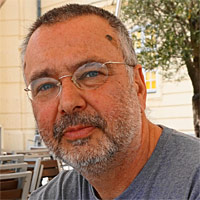
Andreas Peglau
Andreas Peglau, born 1957, Dr. med. rer. medic., graduate Psychologist, Psychoanalyst. In 2013, his book „Unpolitische Wissenschaft? Wilhelm Reich und die Psychoanalyse im Nationalsozialismus“("Unpolitical Science? Wilhelm Reich and Psychoanalysis in National Socialism"), 2017 and „Rechtsruck im 21. Jahrhundert“ ("The Rightward shift in the 21st Century"). Numerous publications on the life and work of Wilhelm Reich and other psychosocial topics, see: http://andreas-peglau-psychoanalyse.de/.
